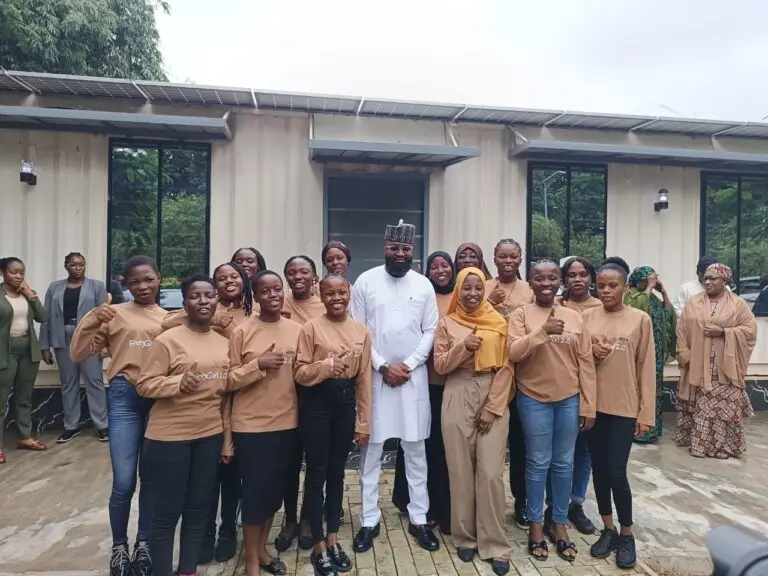Khalil Halilu, the Executive Vice Chairman (EVC) of NASENI, has gone beyond his role and taken a step towards empowering Nigerian youth, especially young girls. Through his foundation, the Khalil Suleiman Halilu (KSH) Foundation, and in collaboration with USAID, he has trained 300 girls and donated laptops to equip them with skills for the tech-driven future.
The initiative, known as EveryGirl or Girl Connect, targets girls aged 14 to 21 in marginalized areas and aims to empower them with skills to adapt to internet utilization. This is a commendable effort by Mr. Halilu and his team as it addresses the issue of the digital divide and promotes gender equality by providing equal opportunities for girls to excel in the tech industry.
The recently concluded training, known as EveryGirl 2.0, saw active participation from girls from all six geopolitical zones of the country. The participants were trained on various subjects such as Introduction to Internet Technology, Internet Communication Tools, Cybersecurity Awareness, Web Browsing and Social Media Skills, Digital Presence Management, Digital Marketing, Internet-related Careers, and Online Safety.
Halilu’s initiative not only provides technical skills to the girls but also aims to educate, mentor, and support them in leveraging the internet for educational pursuits, career prospects, and personal growth. This is a crucial step in bridging the digital divide and preparing young girls for the rapidly advancing world of technology.
The impact of this training goes beyond the 300 girls who were directly involved. As these girls return to their respective communities, they will share their knowledge and skills, thus creating a ripple effect and empowering even more young girls. This is exactly the kind of ripple effect that is needed to bring about a positive change in our society.
Khalil Halilu’s initiative, in collaboration with USAID, to train 300 girls and donate laptops to boost their tech skills is a significant step forward in promoting gender equality, bridging the digital divide, and preparing young girls for the future.






